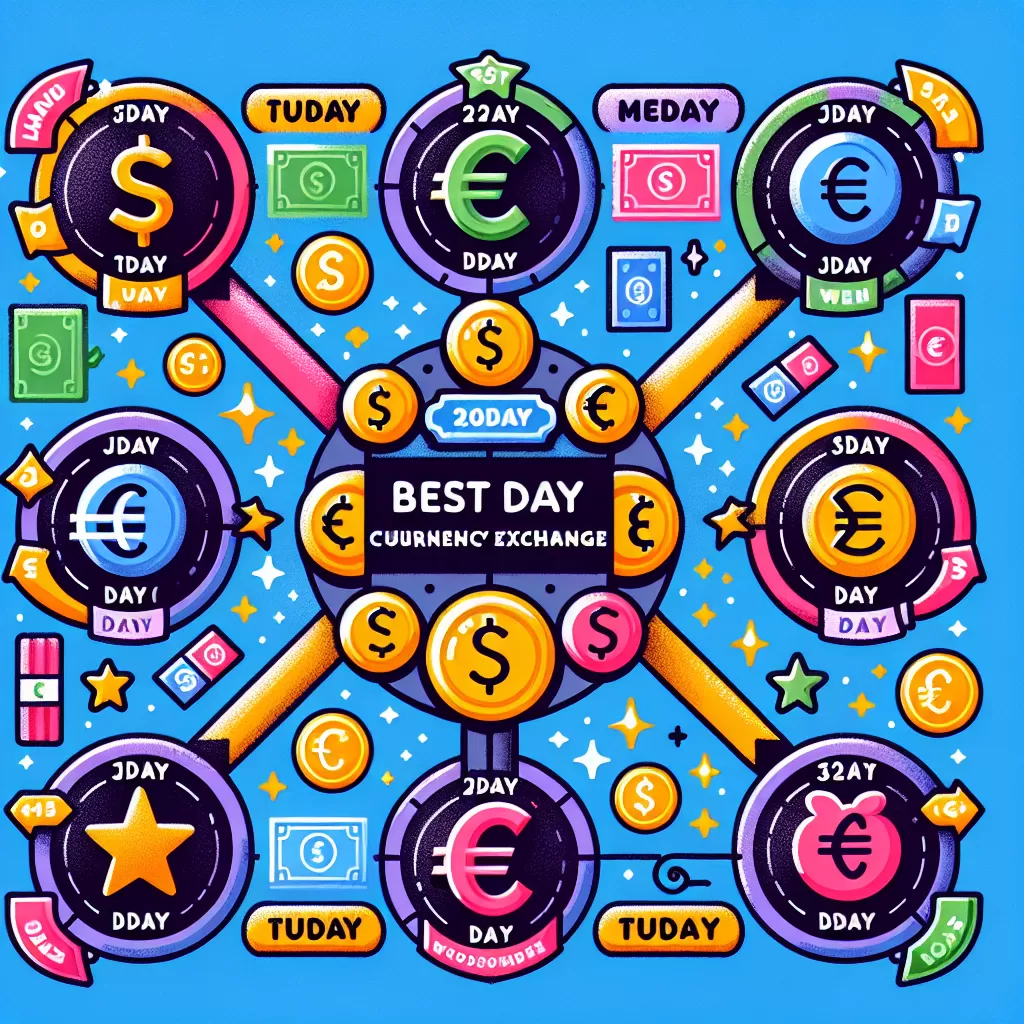Which Day Is Best To Exchange Currency
Follow Currency Mart April 10, 2024
Where to purchase Foreign Currencies?

Introduction
The global currency exchange market is an allure filled with mysteries. The value of a currency fluctuates minute-by-minute, transforming wealth across borders against a backdrop of swirling market forces. However, currency exchange is not merely an arcane art exclusively for high-flying traders. It's a necessity for travelers, expats, online sellers, and anyone dealing with international transactions. In unraveling some of these mysteries, one common question arises: When is the best day to exchange currency?The Role of Time in Currency Exchange
Time plays a critical role in the exchange of currency. Foreign exchange (Forex) market operates 24 hours a day, with currency rates constantly changing due to numerous factors like political developments, economic indicators, and market sentiment. No specific day in a week guarantees the best rates, but trends can often be observed that provide a clue.The Power of Midweek Moments
According to some studies, the Forex market tends to be the most volatile in the middle of the week—typically Tuesday, Wednesday, and Thursday. This height in volatility can mean larger swings in currency rates, potentially providing advantageous exchange opportunities. One explanation for this midweek surge is the overlapping opening hours of major global Forex markets. From Tuesday to Thursday, there's a simultaneous trading period between London, New York, and Sydney. Such synchronization increases the liquidity and volatility in the market, contributing to fluctuations in exchange rates.The Calm of Weekend Days
On the flip side, currency exchange rates tend to stabilize toward the weekend. The close of the New York market on Friday marks the end of the global Forex trading week. From Friday evening to Sunday, there's a pause in trade, which can lead to more stable exchange rates. However, this can be a double-edged sword. Whilst it may provide respite from volatility, it could also mean missing out on potential peaks in currency value.The Allure of Holidays
Holidays can bring with them an altered dynamic to the currency exchange market. Major holidays in influential countries, like the U.S or UK, can result in decreased trading volumes, leading to less volatility but also potentially less liquidity. Deciphering holiday patterns can offer novel opportunities for savvy individuals.Understanding the Role of Banks and Wire Services
The days of operation for banks and wire services also impact the timing of currency exchange. Traditional brick-and-mortar banks and online wire services may offer favorable rates on weekdays compared to weekends. Many of them do not operate 24/7 like the Forex market. It’s therefore wise to factor in their working hours for planning currency exchange.Conclusion
Predicting the best day to exchange currency is more of an art than a science. However, understanding the weekly patterns of Forex trading does offer some guidance. Seize the opportunity with midweek volatility or enjoy the stable boundaries of weekends—it ultimately depends on an individual's risk appetite and their readiness to keep an eye on the market. Always remember, whatever the day, the ultimate goal should be to exchange currency safely, smartly, and with minimal associated costs.
Where to purchase Foreign Currencies?